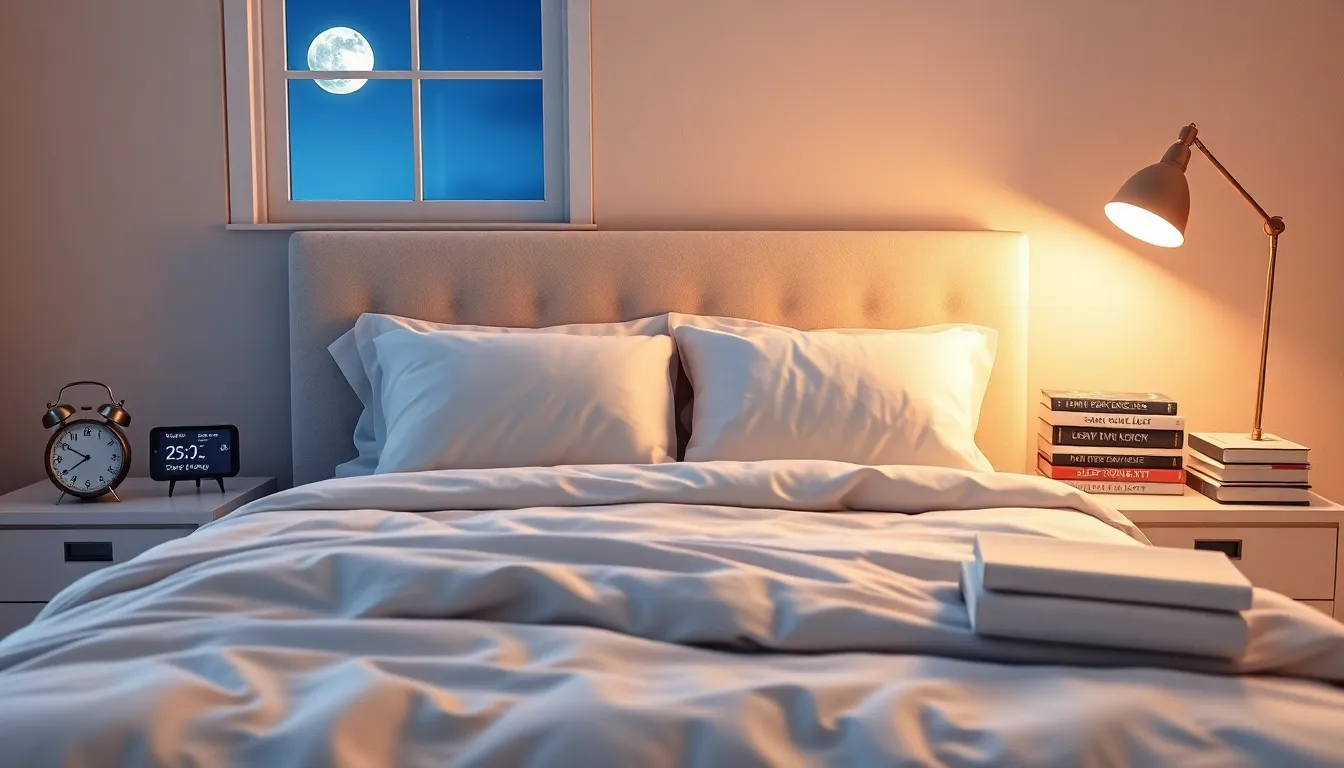Getting to bed on time can feel as elusive as catching a unicorn. With distractions lurking around every corner, be it that gripping TV show or the endless scroll of social media, it’s no wonder many find themselves saying, ‘Just one more episode… or tweet… or snack.’ But fear not. With a sprinkle of discipline and a dash of strategy, you can reclaim your nights and enjoy the rest you deserve. Let’s find out how to master the art of hitting the hay on time without compromising your evening joy.
Table of Contents
ToggleUnderstanding the Importance of Sleep

Everyone knows sleep is vital, but how often do they fully grasp its impact on overall well-being? A good night’s sleep doesn’t simply re-charge batteries: it also enhances cognitive function, improves mood, and boosts immunity. Think of it as the ultimate software update for your brain. Without the right amount of sleep, chronic fatigue can set in, leading to a domino effect of health issues, lack of focus, and generally feeling like a zombie on autopilot through the day. Realizing how much those precious hours affect daily life might just motivate a shift in bedtime behavior.
Identifying Your Sleep Needs
Sleep requirements aren’t a one-size-fits-all kind of deal. Sure, the average adult needs between seven to nine hours, but some folks thrive on less, while others might need that eighth hour plus a nap. To determine how much sleep is necessary, it helps to pay attention to how one feels during the day. If dragging through the afternoon feels like an Olympic sport, chances are there’s a need for more shut-eye. Keeping a sleep diary for a week or two can reveal patterns and guide adjustments. When tiredness calls, it’s best to answer promptly, after all, no one enjoys the cranky version of themselves.
Creating a Bedtime Routine
Imagine this: you’ve just finished a long day, and your head needs to hit the pillow, but your body’s still in high gear. That’s where a structured bedtime routine comes in. Setting a specific time to wind down signals to the brain that it’s almost time for sleep.
Environmental Factors for Better Sleep
Ensure the sleeping environment is cozy and inviting. Lower the lights to mimic a natural sunset, keep the room cool, and eliminate excessive noise. Consider blackout curtains or a white noise machine for that soothing ambiance. A little lavender scent can go a long way in relaxation, just imagine drifting off to dreamland enveloped in calm fragrances.
Limiting Screen Time
Screens are the bane of peaceful slumber. Blue light emitted by devices messes with melatonin production and tricks our brains into thinking it’s still daytime. Try putting away screens at least an hour before bedtime: it’s like giving your mind a gentle nudge to start winding down. Opt for a book or soothing music instead, your eyes will thank you.
Caffeine and Diet Considerations
Speaking of napping, managing caffeine and dietary choices can also play a starring role in sleep quality. Consuming caffeine too late in the day can sabotage even the most robust bedtime plans. Aim to skip caffeinated beverages after the early afternoon. Instead, consider herbal tea, which can be both calming and tasty.
And let’s not forget the joy of a balanced diet. Consuming heavy, spicy, or sugary meals right before bed can lead to discomfort during the night. Keeping dinner light and at least two to three hours before bedtime can help settle the stomach, leaving you more likely to drift into dreamland peacefully.
Managing Stress for Better Sleep
Life throws curveballs that can pile on stress, making sleep feel impossible. But, managing stress can transform nightly sleep. Practices like yoga, meditation, or simple breathing exercises can do wonders.
Overcoming Common Obstacles to Sleep
Often, busy minds make sleep a struggle. If racing thoughts or anxiety take center stage at night, jotting down worries in a journal before bed can be helpful. It’s about giving your mind a chance to let things go, freeing up mental space for rest. Remember, peaceful slumber is as much about fading away anxiety as it is about the physical environment.
Tips for Staying Consistent
Once the perfect routine is established, consistency is key. Encourage a regular sleep schedule by heading to bed and waking up at the same hour, even on weekends. This helps regulate the body’s internal clock. If occasional late nights happen, don’t stress the slip too much, just prioritize getting back on track the following evening. Making sleep a priority in one’s daily life can significantly improve overall health.




